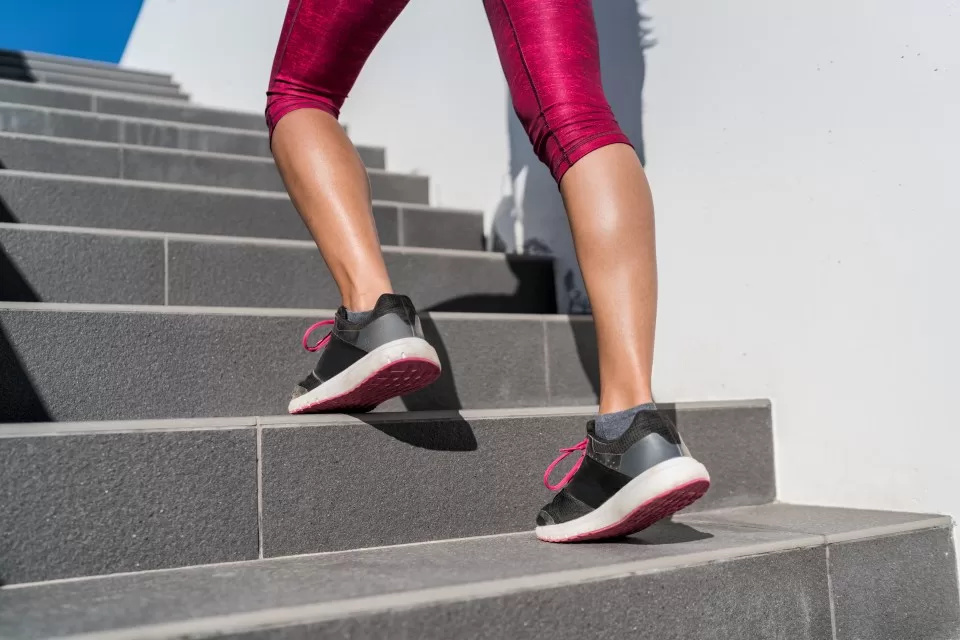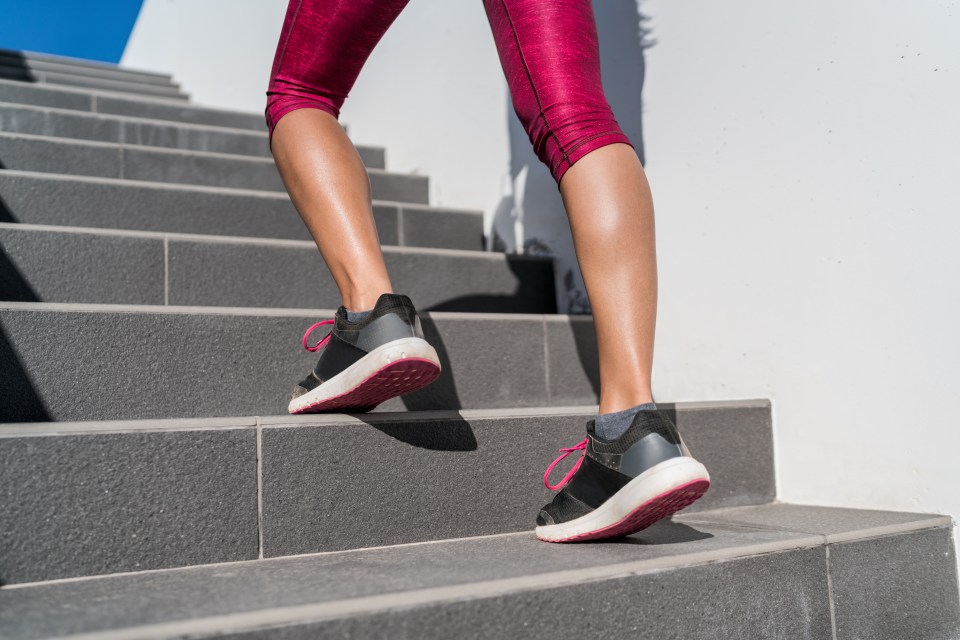DOING quick bursts of exercise can be just as effective as gruelling workouts, researchers say – finding that short bouts consume more oxygen than longer ones.
Getting your heart rate up for 10 to 30 seconds uses up more oxygen than doing the same exercise continuously, University of Milan Scientists found.
They suggested that doing short bursts of exercise in the form of a short stroll or taking the stairs may in fact help burn more energy.
Getting a big payoff from minimal effort has been gaining traction when it comes to working out.
Methods like “exercise snacking” – brief spurts of exertion spread throughout the day – have become increasingly popular, especially when it comes to undoing the damage of sitting at a desk all day.
A 2024 study published to the journal Sports Medicine and Health Science found that doing quick workouts lasting a minute or less throughout the day can boost cardiovascular fitness and muscular function.
Another from the Journal of Physiology found that workouts less than 15 minutes long could improve blood sugar control as well as heart and lung function.
Meanwhile, a separate study published in Nature Medicine journal, linked small amounts of vigorous physical activity interspersed throughout the day to a longer life.
The new study conducted by researchers at the University of Milan adds to the body of research supporting short exercise bursts.
Its authors asked 10 young and healthy participants to walk on a stair climber for bouts lasting 10, 30, 60, 90 and 240 seconds – amounting to four minutes.
Each bout was repeated twice in a random order.
The participants had their oxygen uptake measured for three minutes before each bout while they were sat down, and for seven minutes after each exercise burst.
Oxygen uptake – how much oxygen your body uses while exercising – is a tool commonly used to understand people’s fitness levels.
Researchers repeated the experiment with another 10 people, this time asking them to walk on a treadmill for for bouts lasting 10 to 240 seconds
They found that walking or climbing stairs in short 10- to 30-second bouts made people consume 20 to 60 per cent more oxygen, compared to doing it continuously for the same distance.
“Our findings indicate that shorter bouts have a substantially higher oxygen cost compared to longer ones,” they wrote.
The study authors said their findings showed that short bursts of exercise could be effective – especially if we’re inactive for much of the day.
Their experiments used the example of walking on a treadmill or stair-master, but you can replicate this outside of gym too.
“Breaking up sedentary time with brief strolls or taking the stairs can greatly increase energy expended daily and improve health”, the authors said.
What is exercise snacking?
Don’t have the time to slog to the gym? No matter!
You can get plenty of bang for your buck by doing small snack-like workouts throughout the day.
“Exercise snacking refers to short bursts of exercise throughout the day,” Joanna Dase, Global Fitness Coach at Curves, told Sun Health.
“Think of it like grabbing a healthy snack for your body instead of sitting for extended periods.
“These mini workouts typically last anywhere between five and 10 minutes and can be done multiple times in a day.”
What are the benefits of exercise snacking?
Joanna said: “Consistently engaging in small amounts of physical activity throughout the day can accumulate and result in long-lasting benefits.
“By breaking up the time spent sedentary, it helps combat the negative effects associated with prolonged sitting, including an increased risk of cardiovascular disease, diabetes, stroke, high blood pressure, depression and high cholesterol.
“As well as this, studies have shown that frequent movement helps boost energy levels and reduce fatigue.
“Exercise snacking is great for healthy habit building, as it encourages calorie building for weight management in a natural and sustainable way that takes off the pressure from long, tiresome exercise routines.
“It is a particularly effective approach if you’re a person who struggles to find time for longer workouts, and want to make exercise more achievable.”
Authors noted that exercise programmes based on short
walking bouts are often used to help treat people with obesity or who have reduced mobility after a stroke.
But it’s also useful for working exercise into your routine if you’re busy and don’t have time to hit the gym.
Sarah Campus, a personal trainer and founder of LDN Mums Fitness, previously told Sun Health: “One of the best things about exercise snacking is that it does not have to be particularly structured.”
She recommended four exercise snacks you can do at home – from squats, to lunges and even a little dance.

